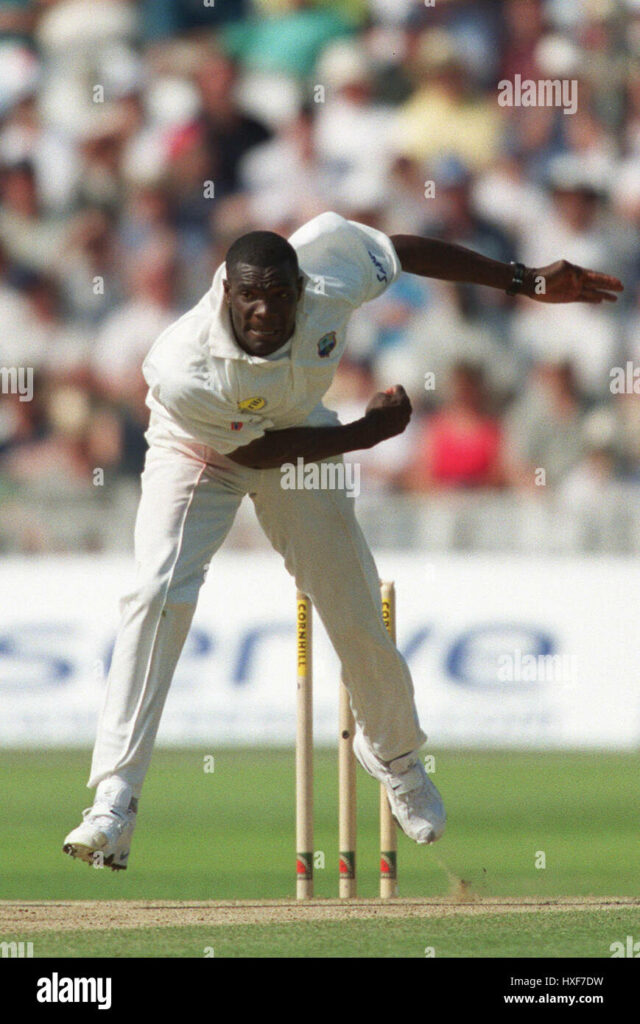In the American automotive industry there are the Big Three and then the rest. In world cricket, whether in Tests
or in One Day Internationals, there are also the Big Three and among them the West Indies are
nowhere to be found.
The euphoria over the home series against Australia earlier this year is now a
fading memory. It can’t, for much longer, paper over the weaknesses of the
board room generals who oversee the cricket programme for the West Indies
and put together the teams to do battle. These generals, it seems, are less
prepared than their foot soldiers.
In the latest display, at the World Cup, the West Indies looked more like
bumptious drivers motoring merrily along in a moth-balled Model T Ford
while other drivers were sporting late model BMWs. In certain countries,
such motorists would be tickets for failing to adhere to the minimum speed
limit posted. If the ICC had similar authority, it could well have punished the
West Indies for collecting money under false pretences.
Indeed, Trevor Chesterfield, in the Pretoria News, accused the West
Indies of just such infractions midway through their tour of South Africa.
The papers were set aside after they provided a little entertainment in the
Caribbean but this time they must be dusted off and the “law” must take
its course.
“We are not far off from being a decent side” claims Manager Clive
Lloyd. “I am still to hear from the management for the reason for the
poor performance,” states chief selector Mike Findlay. Ordinary
performances are prevailing because there is ordinary thinking at the
helm.
Granted, our demise cannot be turned around in a day, but neither can
the West Indies wait forever for effective change in tactics to come
from its bridge. The reef is now dead ahead. Two areas that must now
be looked at are the targeting of juniors and bringing more insight into
team selection and player retention.
A lot of lip service has been paid to targeting youth but not much
is being done. Cricket on television is all well and good but to
appreciate the subtleties of the game and to develop
techniques nothing beats being in attendance. Set
aside catering to the schedules of other countries.
We need to address problems in our backyard.
International cricket in the Caribbean should be repositioned
to the first weeks of the summer when school children are in recess.
Cricket on television is designed to titillate not instruct. Besides,
unearthed talent doesn’t necessarily be in households where there is
television.
The Board must strike a balance between filling its coffers by beaming back scenes of the alluring
Caribbean to the bone-chilled in England and appealing to its young talent at home. Coupled
with this repositioning, blocks of discounted tickets must be made public to school-aged children. To
avoid conflict with England and the team they host for their summer, we would revert to an early spring
schedule.
Bookstore shelves also need to carry cricket material that appeals to
school-aged children. I see nothing to stimulate their interest in cricket.
Yet there is the thick Manley treatise and the Beckles dissertations
but no easy-to-read pictorials on our cricketing heroes, past and present. If there’s to be an all-out
blitz, the Board must commission publications such as these.
One good step by the Board has been to take regional cricket to the rural grounds. In time, this will bear
fruit.
When it comes to insightful squad selection, the Board is not doing a good job. Like reprinting bogus
invitations, too many players are being introduced into the Test arena without proper grounding in
the basics. Cases in point: Patterson Thompson spent nearly his entire tour of Australia in the nets trying to
straighten out his no-ball problem. In recent times, the fielding of our fast bowlers has been a letdown yet Reon King is promoted to Test cricket with one of the worst pair of hands. Floyd Reifer was sent to South Africa
to answer an SOS call but, with no technique and general ill-preparedness, only added weight.
The new prescription for winning lies in introducing sound players
with some all-round depth, not in including players with stark
deficiencies and then attempting to shield them. We are going down the wrong road. George Headley
used to say “see the ball early, but play the shot late!” He made runs to support the theory.
Unfortunately, the West Indies management isn’t having the same success applying
this metaphor to team selection. Too often they persist with players who
have neither the talent nor the commitment – “the right stuff ” as Sir Vivian Richards puts it.
In the end we do our cricket a disservice by parading mediocrity. If well-intentioned
selections turn-out to be blunders, the players must be weeded out quickly. A less
forgiving retention policy must be adopted. The Board is now very rarely rewarded for giving
marginal players extended runs. Again, names must be called and Stuart Williams is
an example.
Team management also needs shaking up. Clive Lloyd’s temperament was ideally suited
for the squad of players he had in his heyday. They were talented, responsible, committed to
excellence and took pride in winning. The players coming along these days are different and a firmer hand is needed. Give the job to
Sir Vivian Richards. Malcolm Marshall’s unfortunate ill-health means that he has to be replaced, yet it is
hard justifying a coach whose forte is bowling when the team’s problem is its batting.
Even the prospect of employing a coach from another country must not be ruled out. Some other Boards
have resorted to this – and with success.
We are in a dogfight for survival. No quarter must be spared because, if international teams were to be
split in two divisions at present – as is being mooted in English county cricket – the West Indies would be
the flagship of Division 2!
